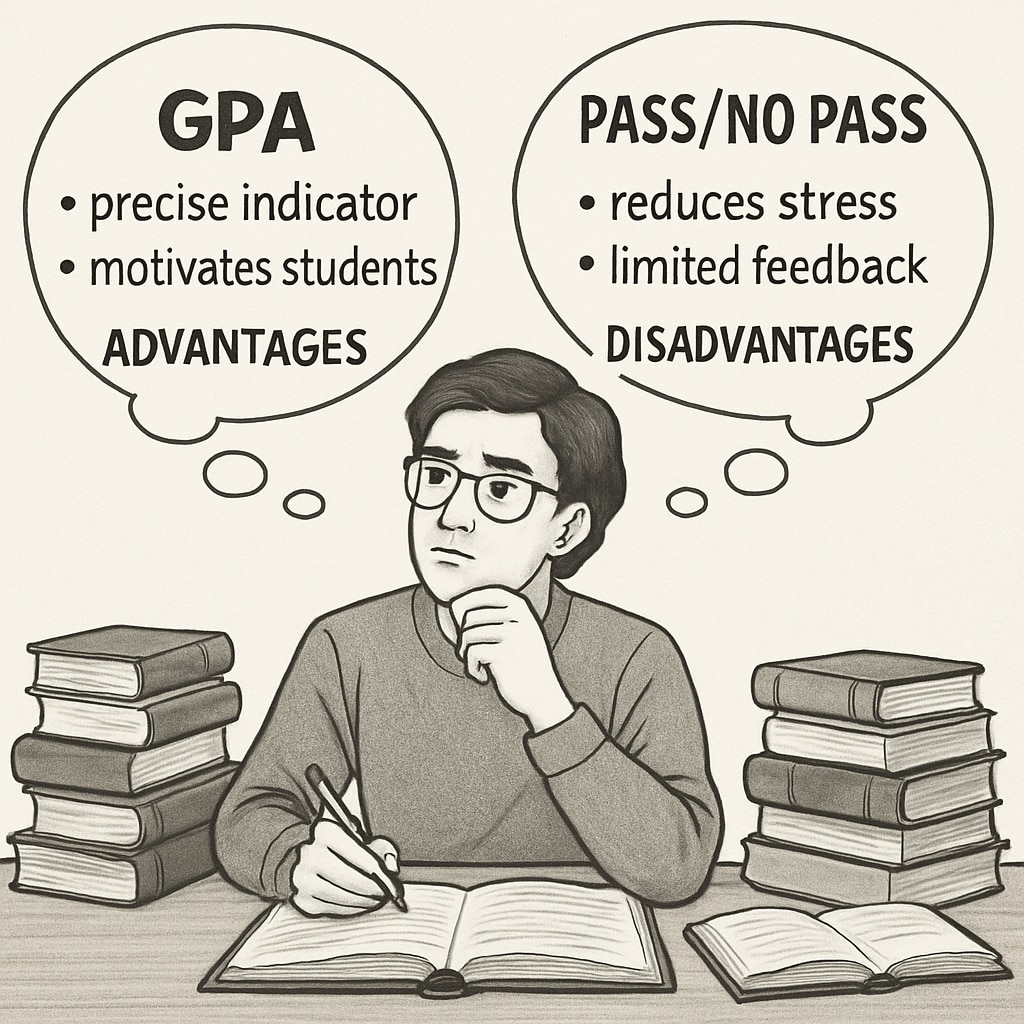When choosing between GPA-based grading and the Pass/No Pass (P/NP) system in university, students often find themselves grappling with the potential consequences for their career prospects. While GPA (Grade Point Average) is a universally recognized metric that can highlight academic excellence, P/NP grading offers a more flexible and stress-reducing option. But how do these choices align with long-term professional goals? This article breaks down the implications of these grading systems, helping students make informed decisions based on their aspirations.
Understanding GPA and P/NP Systems
Before diving into the career impact, it’s important to understand what these grading systems entail. The GPA system assigns a numerical value to grades, providing a precise measure of a student’s academic performance. Employers, graduate schools, and scholarship committees often rely heavily on GPA as a benchmark of achievement.
On the other hand, the P/NP system allows students to focus on learning without the pressure of earning a specific letter grade. A “Pass” indicates satisfactory completion of a course, while “No Pass” indicates failure. Though P/NP grades don’t impact GPA, they may limit how achievements are perceived in competitive environments.

Career Implications of GPA-Based Grading
For students pursuing careers in industries that demand high academic performance—such as finance, medicine, or law—maintaining a strong GPA is crucial. Employers in these fields often use GPA as a screening tool, and graduate programs frequently set minimum GPA requirements for admission.
Additionally, GPA serves as a quantifiable indicator of discipline and consistency. A high GPA can enhance your résumé, making you stand out in competitive job markets. However, the pressure to achieve high grades may lead to stress and burnout, which is worth considering when planning your academic strategy.
Advantages and Limitations of P/NP Grading
The P/NP grading system offers benefits that appeal to many students. It encourages exploration of challenging subjects without risking GPA damage, fostering a growth-oriented mindset. For example, students interested in taking advanced courses outside their major might opt for P/NP grading to focus on skill-building rather than grades.
However, the lack of detailed performance metrics may pose challenges when applying for jobs or graduate programs. In competitive fields, a transcript filled with P/NP grades might raise questions about a candidate’s preparedness and commitment. As a result, students should carefully evaluate whether the flexibility of P/NP aligns with their career ambitions.

How to Choose the Right Grading System
When deciding between GPA and P/NP grading, students should consider the following factors:
- Industry Standards: Research whether your target industry values GPA or places emphasis on other qualifications.
- Graduate School Requirements: Check if your desired programs require a strong GPA or specific course grades.
- Personal Learning Goals: Assess whether you want to focus on learning for personal enrichment or academic performance.
- Mental Health: Consider whether GPA pressure might negatively affect your well-being.
Long-Term Strategies for Success
Regardless of the grading system you choose, building a well-rounded profile is essential for career success. Participation in internships, extracurricular activities, and networking opportunities can complement your academic achievements. Demonstrating skills and experiences beyond grades can make a significant difference when applying for jobs or graduate programs.
Ultimately, the best grading system depends on your career goals and individual circumstances. By understanding the implications of GPA and P/NP grading, you can make choices that align with your aspirations and set yourself up for success.
Readability guidance: This article uses short paragraphs and clear headings to enhance readability. It incorporates lists to summarize key points and ensures a balanced use of active voice and transitional phrases.


